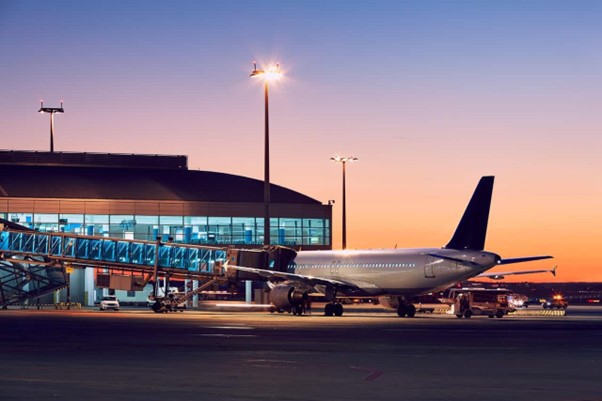The African Continental Free Trade Agreement (AfCFTA) is beginning to take root and altering the face and efficiency of infrastructure across South Africa. Air ports Company South Africa (ACSA) revealed that it has set its sights on improving its infrastructure and capacity to handle air cargo at OR Tambo International Airport in Johannesburg. This goes hand in hand would having cohesion would other nations on the African Continent.
According to ACSA, data released by the International Air Transport Association (IATA) for April 2024 shows that global air cargo markets were seeing strong annual growth in demand into the second quarter of the year and Africa’s air cargo traffic is set for growth in the coming years, motivating it to bolster its efforts at handling cargo. IATA data highlighted that African airline saw 10.6% year-on-year demand growth for air cargo in April, while demand in the Africa-Asia market increased by 25.8% compared to April 2023. Acsa group Executive Operations Management Terence Delomoney said that aviation, and specific air cargo, has the potential to be a significant driver of socio-economic growth and development across the African continent, as air freight creates huge economic value for an airport’s region or country, enabling local trade and attracting new high-value industries.
Using airlines and therefor planes to transport cargo from one country to another links under-developed land locked nations and regions to coastal areas. From there these products can be transferred to other parts of the world. The increased delivery of goods by airway will lead to significant growth in African economies like South Africa and its neighbours leading to job creation. ACSA is to reap the benefits of the new growth in the markets by expanding their business across borders. This boasts economic livelihoods across nations. The increase in the demand for goods being made in Africa will encourage enhancement in the manufacturing sector in South Africa. It could create a growth in jobs for the nation as well as its neighbours. Thousands will be lifted out of poverty. Families will be able to earn income and give their children stable homes.
AfCFTA is the world’s largest free trade area, bringing together the 55 AU member countries and eight economic regions. As part of the AU Agenda 2063 strategy, AfCFTA aims to boost income by $450 billion and lift more than 30 million people out of poverty across the continent. “While air cargo across the continent, including South Africa, has not yet taken off to the extent that it should have, a concerted effort by all stakeholders to improve the airfreight sector will ensure that exporters and importers have viable options to deliver high-value goods quickly and efficiently,” said Delomoney. Africa accounts for 18% of the global population, but only 2.1% of air transport activities. However, the World Bank estimates that the AfCFTA could boost Africa’s exports to the rest of the world by 32% by 2035 and catalyse foreign direct investment, which is expected to rise by between 111% and 159%.
The African Union needs AfCFTA to lay the foundation of free trade amongst the variety of members and economic regional groups that make up the umbrella organization. The major goal of AfCFTA is about improving the livelihoods of the citizens who make up the bulk of the population. Air Cargo trade is a means to bolster the objectives of AfCFTA to set up the free and cross-border market. The stakeholders involved in increasing the chances of improving free trade are the governments of the AU’s various member states, the airline companies who transport the cargo and the manufacturing and primary industries that will benefit from the new boost in trade. Africa needs to improve its air transport activities to promote job creation. This is the only key way to tackle severe poverty and improve the overall life expectancy of its citizens.
South Africa will have a key role in this and become a major leading hub in the trade area.
South Africa, Côte d’Ivoire, Egypt, and Nigeria were the top four largest contributors to intra-Africa trade in 2023, according to a new ‘Africa Trade Report 2024’ published by the Africa Export-Import Bank (Afreximbank). The report titled “Climate Implications of the AfCFTA Implementation” also noted that just three years into the implementation of the African Continental Free Trade Area (AfCFTA) agreement, Nigeria’s share of total intra-African trade dropped to about 4.2 percent in 2023 from 4.4 percent in 2022. In 2023, the value of intra-African trade increased by 3.2%, reaching $192.2 billion, although this was a slowdown compared to the 10.9% growth rate recorded in the previous year. The Afreximbank report identified key products with significant export potential within Africa, including machinery, electricity, motor vehicles and parts, food products, minerals, beauty products, chemicals, plastic and rubber, ferrous metals, pearls and precious stones, and fertilizers.
The continent is roaring with opportunity even if it is marred by strife. The time to look to the future is now and inter-Africa trade is the way to go. Trade between South Africa and its neighbours could lead to a strengthening of the democratic institutions and stabilize the continent. The focus given by South Africa, Côte d’Iviore, Nigeria and Egypt as the top largest investors in investment. South Africa has the most dynamic institutions in terms of trade and governance. It is up to President Cyril Ramaphosa to utilize the advantages at his disposal. South Africa has amongst the best air travel and harbour facilities at its disposal. The country is home to international venues such as the International Convention Centre in Durban. It is up to the nation to utilize the facilities, venues and other institutions at its disposal.
Only then will it become a true centre of economic revitalization of the African continent.
Article written by:
Yacoob Cassim
Journalist at Radio Al Ansaar






